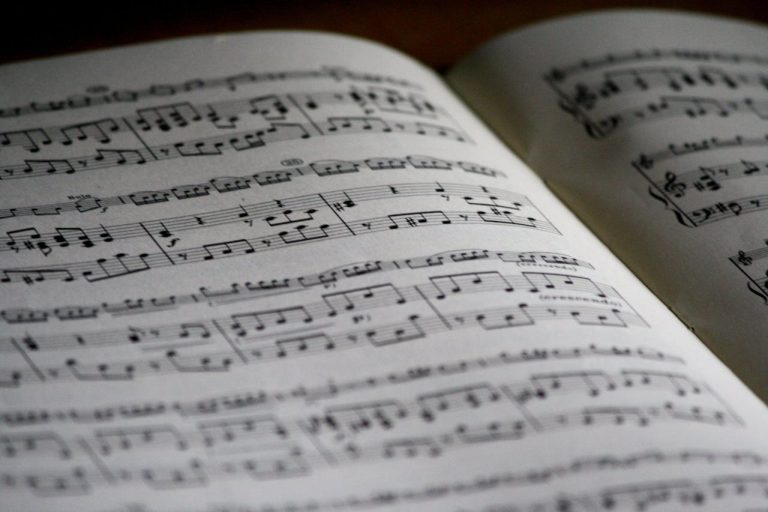Hello there, IB students! As a seasoned writer with extensive experience in the International Baccalaureate (IB) curriculum, I’m thrilled to share my insights on Music IA topics. This important component is a key aspect of the IB Music SL and HL courses.
What Is IB DP Music Course?
You’ve come to the right place if you’re curious about the IB DP Music course. Drawing from my extensive experience as an IB writer and educator, I understand what this intriguing and dynamic course entails. So, what exactly does the IB DP Music cover? Well, it includes a variety of areas:
- Musical Perception. Students learn to analyze and understand music from different cultures and times. This part of the course is fascinating, as it opens up a world of musical diversity.
- Creating Music. According to general IB criteria, students create music through composition, arrangement, or improvisation. It allows them to express themselves creatively and develop composition skills.
- Performance. Students can perform as soloists or as part of a group. This aspect is crucial as it develops their technical skills, stage presence, and confidence.
The course offers Standard Level and Higher Level. Both options require students to engage in musical analysis, performance, and creation, but the HL course demands a deeper level of engagement and more extensive study.
The Requirements of the IB Music IA
Now, let’s get down to business. Understanding the requirements of the IB Music IA is fundamental. From my experience, the criteria vary between SL and HL, with each demanding specific skills and knowledge.
The Music IB Internal Assessment typically includes creating a musical composition, performing pieces, and a musical analysis. The requirements may vary depending on whether you take the SL or HL. If your assessment includes composing music, focus on originality, technical skills, and expressing your musical ideas. Ensure that your composition reflects your understanding of musical theory and elements.
The IA typically involves a shorter, more focused task for SL students. It might include a musical composition, a performance, or an analysis of musical pieces. The emphasis here is on demonstrating a solid understanding of musical concepts and the ability to apply them coherently and creatively.
HL students, on the other hand, are expected to dig deeper. Their IAs often require a more extensive exploration of complex musical ideas and a higher technical skill. Whether through a longer composition, a more challenging performance, or a detailed musical analysis, HL students must demonstrate a thorough understanding of advanced musical concepts and a high degree of creativity and originality.
Across both levels, a successful IA will be well-researched, well-presented, and reflective of the student’s unique musical voice. As I always advise my students, your IA differs from an extended essay as it should reflect your passion for music. It’s your chance to show the depth of your understanding and your ability to think and express yourself musically.
Remember, the IB Music Internal Assessment is an opportunity to demonstrate your musical skills and understanding. Approach it with creativity and a commitment to showcasing your best work.
Get Help With Your Paper
IB Music IA Topics and Research Questions
Consider these IB Music IA topics and ideas for Standard Level (SL) and Higher Level (HL), along with their research questions. Also, I recommend you read about the IB IA rubric and assessment criteria.

Standard Level (SL) IB Music IA Topics
The SL IA tends to have a narrower scope compared to HL. Students at this level are expected to demonstrate a good understanding of musical elements. Still, the depth of analysis and the complexity of the tasks are more approachable:
- The Evolution of Blues Music. How has blues music evolved from its origins to modern interpretations?
- The Impact of Classical Music on Modern Soundtracks. In what ways has classical music influenced contemporary film soundtracks?
- Jazz Improvisation Techniques. How do jazz musicians use improvisation to create unique performances?
- The Beatles’ Influence on Pop Music. How did The Beatles transform the landscape of pop music?
- Women in Opera. How have female roles in opera evolved over time?
- Reggae and Social Change. How has reggae music contributed to social change movements?
- Musical Theatre’s Evolution. What are the significant changes in musical theatre from the 20th to the 21st century?
- The Role of Technology in Music Production. How has technology transformed the way music is produced?
- Music and Political Expression. In what ways has music been used as a tool for political expression?
- The Rise of K-Pop. What factors have contributed to the global rise of K-Pop?
- Music Education’s Impact on Cognitive Development. How does music education affect cognitive development in adolescents?
- The Fusion of World Music Genres. How have artists successfully blended different world music genres?
- The Influence of African Rhythms on Modern Music Genres. How have traditional African rhythms influenced modern music genres like hip-hop and jazz?
- Evolution of Electronic Dance Music. How has electronic dance music evolved since its inception?
- Country Music and American Culture. What role does country music play in reflecting American culture and values?
- Music as a Form of Protest. How has music been used as a protest in different historical contexts?
- Exploring the Music of the Middle East. What are the key characteristics of traditional Middle Eastern music?
- The Rise of Latin Pop. What factors have contributed to the rise and popularity of Latin pop music globally?
- Punk Rock as a Cultural Movement. How did punk rock reflect and influence cultural movements in the 1970s and 1980s?
- The Impact of Music Streaming on the Music Industry. How has the rise of music streaming services changed the music industry?
- The Relationship Between Music and Fashion. How do music and fashion influence each other in popular culture?
- Music in Video Games. How does music enhance the gaming experience in modern video games?
- The Cultural Significance of Hip Hop. What is the cultural significance of hip-hop in contemporary society?
- Music Therapy and Mental Health. How is music therapy used to improve mental health?
- The Revival of Vinyl Records. What factors have led to the recent revival of vinyl records?
- The Cultural Significance of Flamenco Music. What does flamenco music reveal about Spanish culture and history?
- The Influence of Celtic Music on Contemporary Folk. In what ways has traditional Celtic music influenced contemporary folk genres?
SL students may opt for a composition or a musical links investigation as their IA. The composition for SL is typically shorter and less complex than for HL.
You Might Also Like:
- Theatre IA Topics
- Film IA Topics
- IB Business Management Extended Essay
- Psychology Extended Essay Topics
- How to Write an IB Internal Assessment
- What Is an Internal Assessment?
- IB EE vs IA. What are the Main Differences?
- How to Choose a Research Question for an Extended Essay?
Higher Level (HL) IB Music IA Topics
HL students are expected to demonstrate a higher understanding and mastery of musical concepts. The IA tasks at HL are more complex and require a deeper level of analysis, composition, and performance skills:
- Advanced Harmonic Progressions in Jazz. How do advanced harmonic progressions in jazz influence the genre’s musical complexity?
- The Role of Counterpoint in Bach’s Fugues. How does counterpoint contribute to the complexity of Bach’s fugues?
- The Influence of Indigenous Music on Contemporary Composers. In what ways has indigenous music influenced contemporary composers?
- Musical Expression in Shostakovich’s Symphonies. How did Shostakovich use musical expression to convey messages in his symphonies?
- The Development of Electronic Music. What are the key milestones in the development of electronic music?
- A Comparative Analysis of Romantic and Impressionist Music. What are the fundamental differences between Romantic and Impressionist music?
- The Impact of Jazz on the American Civil Rights Movement. How did jazz music impact the American Civil Rights Movement?
- The Influence of Middle Eastern Music on Western Composers. How has Middle Eastern music influenced Western composers?
- The Evolution of Opera in the 20th Century. How did opera evolve throughout the 20th century?
- Analyzing the Complexity of Beethoven’s Late Quartets. What makes Beethoven’s late quartets musically complex?
- The Role of Dissonance in Modern Music. How is dissonance used as an expressive tool in modern music compositions?
- The Fusion of Jazz and Classical Music. How do musicians successfully fuse jazz and classical music genres?
- Advanced Rhythmic Techniques in African Drumming. What advanced rhythmic techniques are characteristic of African drumming?
- Complexities of Indian Classical Music. What are the complexities and unique features of Indian classical music?
- Minimalism in Contemporary Classical Music. How has minimalism influenced contemporary classical music?
- Musical Innovations of The Rolling Stones. What musical innovations did The Rolling Stones bring to rock music?
- African Music and Postcolonial Identity. How does African music express postcolonial identity?
- The Role of Music in Religious Rituals. What role does music play in various religious rituals around the world?
- Bach’s Fugues: An Analytical Study. How do Bach’s fugues demonstrate his mastery of counterpoint?
- The Evolution of Opera from Classicism to Romanticism. How did opera evolve from the Classical period to the Romantic era?
- Music and Politics in Latin America. How has music been used as a political tool in Latin America?
- Gender Dynamics in Rock Music. How do gender dynamics play out in the world of rock music?
- The Use of Synthesizers in Modern Music. How have synthesizers transformed modern music production?
- Cross-Cultural Influences in Contemporary Jazz. How do cross-cultural influences manifest in contemporary jazz?
- The Sociopolitical Impact of Reggae Music. How has reggae music impacted sociopolitical issues globally?
- The Evolution of Guitar Techniques in Rock Music. How have guitar techniques evolved in rock music from the 1960s to the present?
- Music and Identity in the Post-Colonial Era. How has music been used to explore and express identity in post-colonial societies?
HL students who opt for the composition IA must produce a more substantial and complex piece.
Conclusion
Your IB Music IA path can be challenging and exhilarating. Remember, it’s a chance to showcase your understanding and passion for music. Go forth and make your musical mark! Also, remember that our IB IA Writing Service team is here if you need help with your Internal Assessment.

Nick Radlinsky
Nick Radlinsky is a devoted educator, marketing specialist, and management expert with more than 15 years of experience in the education sector. After obtaining his business degree in 2016, Nick embarked on a quest to achieve his PhD, driven by his commitment to enhancing education for students worldwide. His vast experience, starting in 2008, has established him as a reputable authority in the field.
Nick's article, featured in Routledge's "Entrepreneurship in Central and Eastern Europe: Development through Internationalization," highlights his sharp insights and unwavering dedication to advancing the educational landscape. Inspired by his personal motto, "Make education better," Nick's mission is to streamline students' lives and foster efficient learning. His inventive ideas and leadership have contributed to the transformation of numerous educational experiences, distinguishing him as a true innovator in his field.

How to Overcome Procrastination During IBDP?
Procrastination during IBDP is something almost every IB student faces—but it doesn’t have to control your progress. In this article, we share realistic tips and study tricks that actually help you stay on track.

How Does IB Check for Plagiarism and AI?
One of the things you might be most worried about when you’re writing an Internal Assessment or extended essay is how does IB check for plagiarism. Over the years, I’ve worked with many students, and I can say that the IB really values academic honesty. But what tools and methods does the IB use to make sure your work is original?

Balancing Part-Time Work and IB Studies
Many students question me, “How can I balance part-time work and IB studies without getting too tired?” Anyway, from what I’ve seen, it’s not just about fitting things into your plan. You need to know what’s most important to you, how to deal with stress, and when to take a break.

Communication with IB Teachers and Advisors
Good communication with IB teachers and advisors is often the difference between making it through the IB and flourishing in it. I’ve worked with many students, and those who know how to have deep conversations with their teachers and advisors always get back on track faster.

How to Manage Exam Anxiety and Stress During IBDP?
It’s no wonder that many students ask, “Why are IB students so stressed?” They must handle six subjects, plan for the Extended Essay, and do their CAS hours. IB stress is real, and I’ll say that right away.

Maximizing Your Extracurricular Profile Beyond CAS
One thing needs to be made clear: the CAS (Creativity, Activity, Service) part of the IB Diploma is important, but it’s not the only part. In fact, from my experience as an IB mentor, students who build a strong profile outside of CAS tend to stand out more during university admissions.
